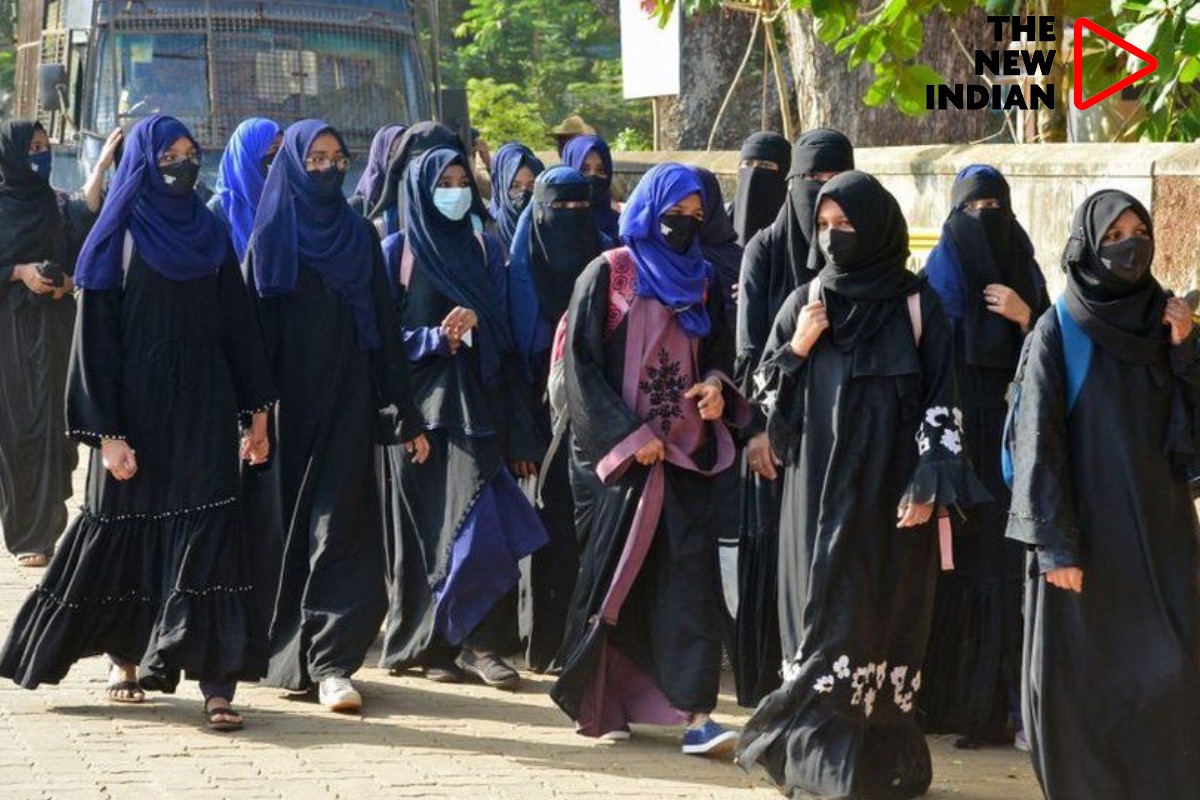

The statement of the Shahi Imam of Ahmadabad’s Jama Masjid Shabbir Ahmed Siddiqui in Gujarat has exposed the general religious attitude of the ummah towards Muslim women in the political sphere. The usual suspects can be expected to come up with apologia or maintain a strategic silence since this controversial statement doesn’t correspond with the cabal’s narrative of the oppression of Indian Muslims by the Hindus in India. These controversial remarks on the participation of Muslim women in politics should be taken as an opportunity to explore the misogynistic sources in the scriptures that derive this regressive mentality. These misogynistic interpretations are the cause of why Indian Muslims, specifically women are backward, lack agency in decision making and are often the victims of exploitation by the breaking-India forces. This was evident in the Karnataka hijab row or the usual Oppression Olympics played by foreign destabilising agenda groups in international media.
Muslim women are among the most vulnerable groups in India. The majority of them lack skills, are uneducated and are subject to cultural and religious restrictions. The much-hyped Sachar Committee Report noted that the main cause behind the degraded status of Muslim women is the backwardness of Muslims in the socio-economic sphere. They have lagged behind other religions due to social factors like poverty, low earnings, low rate of literacy, and inadequate avenues of employment. In a study called ‘The changing half: A study of Indian Muslims’ by Sabiha Hussain, it was found that rather than the religious factors alone, other structural and institutional paradigms like customs, traditions, moral systems, patriarchy, the misconception of Islamic principles, lack of self-initiative or inspiration, and lack of support from male members jointly hamper the prospects of women to adopt new values and conform to the changing milieu.
The gist of this study is that the Indian Muslim male is responsible for the low status of Muslim women in India. Their regressive mentality matching that of the Shahi Imam of Ahmedabad’s Jamia Masjid is what keeps the community from progressing in the 21st century with humanitarian values, tolerance for other cultures and groups and an acceptance of mutual co-existence as an Indian nation of shared heritage. There are deceptive Muslim organisations, such as the All India Muslim Majlis-e-Mushawarat (AIMMM) which advocates for reservations for Muslim women in the political sphere. But Muslim women know it is just tokenism. Even if they engage in the decision-making process of Muslim organisations, they may be obligated to provide religious/customary advice.
ALSO READ: Islam forbids women from contesting polls, says Shahi Imam of Ahmedabad Jama Masjid
There can be a religious argument in favour of Muslims in the political sphere. Considering the Prophet’s first believer and convert was his wife Lady Khadija, a businesswoman and employer of the Prophet himself. Her decision to take the side of a revolution that he was starting in the Quraysh tribe can be deemed as a political decision – that took into account the consequences of advocating for equality for all slaves and masters, without distinction of status or race. It was a political decision that resulted in the Hijra, the start of the crystallization of Muslims into a clear socio-political force in its own right.
Then there is Lady Aisha, the Prophet’s youngest wife, much in controversy and to whom most of the Hadith and verses of the Quran are attributed, irrespective of whether they hold true or not. It is to be remembered she accompanied him in battle and herself fought the Battle of the Camel in Iraq against the fourth Caliph Ali – the start of the many divisions and schisms of Islam that were to come. But it is also to her credit within the context of this battle that a famous hadith is ascribed to the Prophet, “When the Prophet heard the news that the people of Persia had made the daughter of Khosrau their Queen (ruler), he said, ‘Never will succeed such a nation that makes a woman their ruler.'”
Dar al-Ifta al-Misriyyah, an Islamic institute that advises Egypt’s ministry of justice, issued a fatwa stating that female rulers and judges are allowed in Islam, citing contemporary scholars who have cast doubt on the authenticity of the above-mentioned Hadith. It also referred to the odd timing of the Hadith’s first release, its contradiction with the verses of the Quran, and the most likely use of the Hadith for a specific person at the time (Queen of Persia) rather than as a general rule or advice. But as Indian Muslim clergy (ulema), politicians, community leaders and influencers want to do; they will double down on this Hadith and keep reiterating that women shouldn’t be encouraged to hold office despite the Qur’an containing verses that appear to support the role of women in politics such as its mention of the Queen of Sheba, who represented a ruler who made important decisions on behalf of her people.
The rational argument against the regressive remarks of the Shahi Imam is that this is the 21st century, women hold up half the sky, and they are an important part of the welfare of family, society, community, civic bodies, institutions, and the State. They cannot be invisible in policy formulations, decision-making and other fundamental duties of a citizen. India has always recognised the efforts of its women in the struggle for Independence from the imperialist British. With the digital age making advances in many areas of record keeping, celluloid, literature, the arts and archives, Indian women’s contribution to Poorna Swaraj (complete self-rule) is being cemented for posterity at a much larger scale with equal emphasis on Muslim women who were not part of the machinations of the Muslim League which divided this country. Muslim women in India cannot be left behind in the story of India’s rise and should be an important part of it in the future, the remarks of the Shahi Imam notwithstanding.